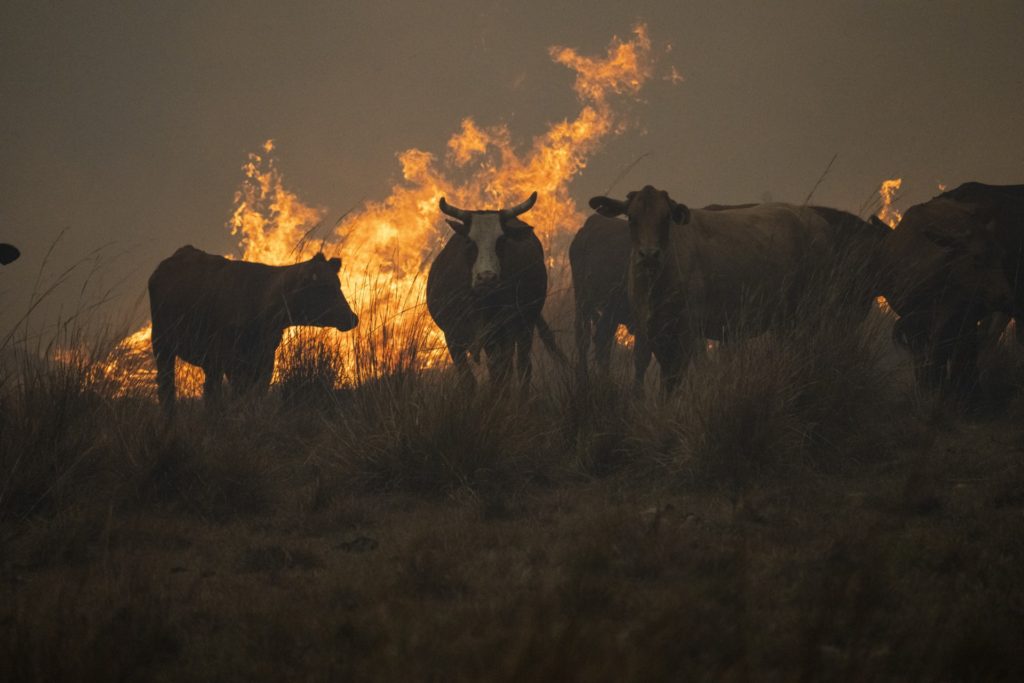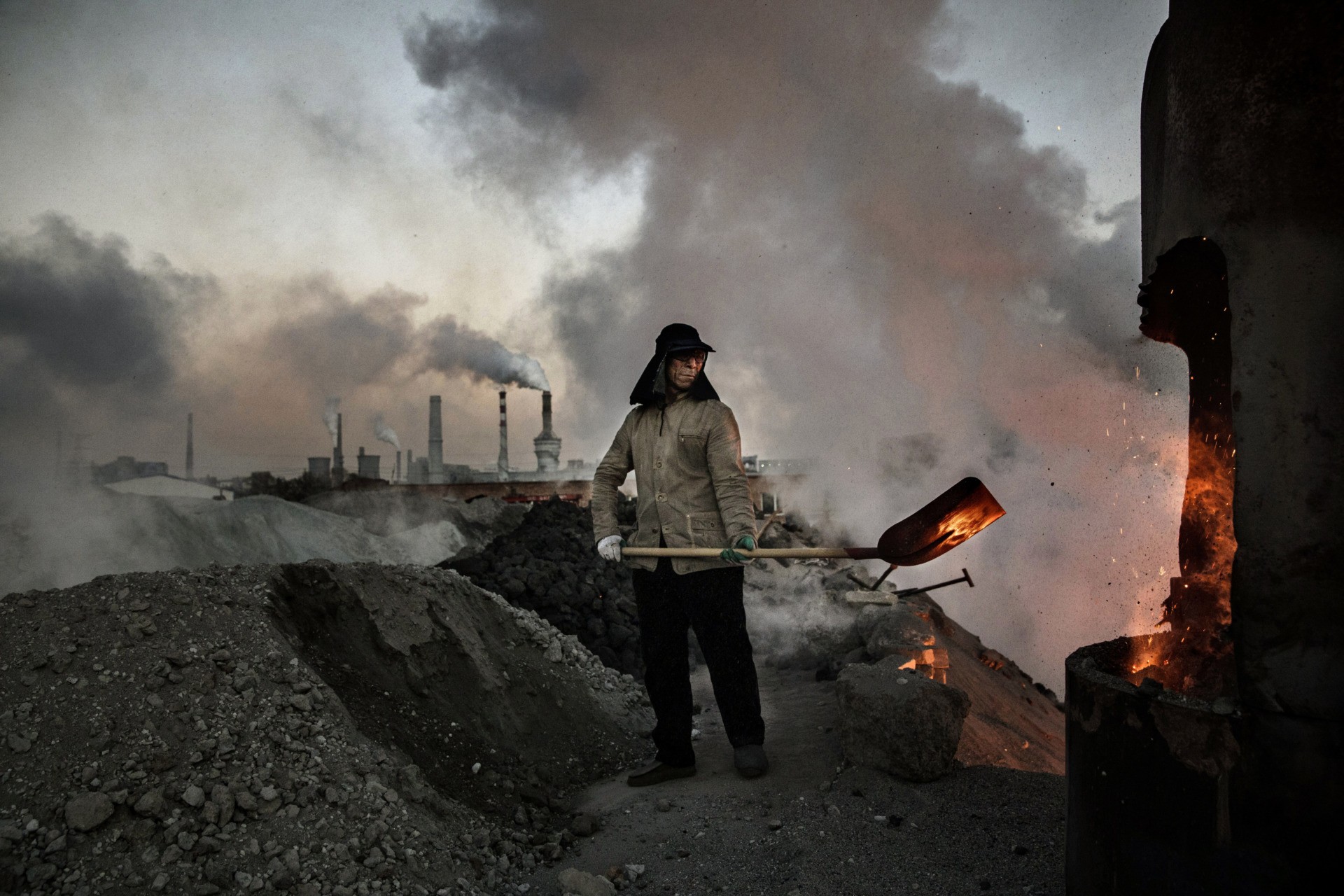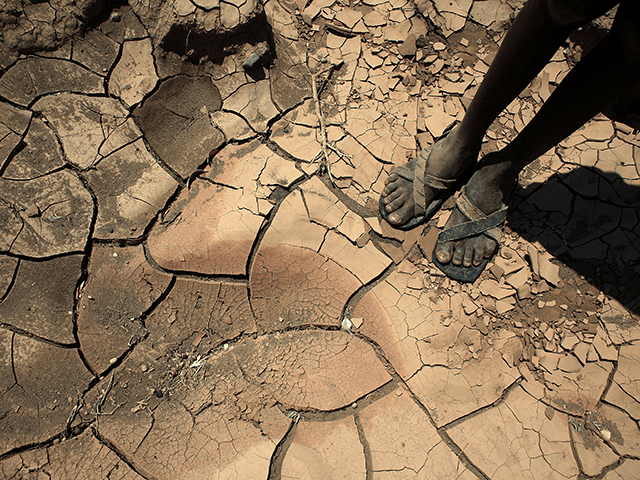As the Russian invasion of Ukraine continues and the threat of another World War hangs in the balance, the United Nation’s Intergovernmental Panel on Climate Change (IPCC) issued a report Monday warning that “billions” of people are in danger from the weather.
The massive report paints a grim picture of the planet and its population’s future based on controversial climate models.

Cows gather next to a column of fire in Santo Tome, Corrientes province, Argentina, Sunday, Feb. 20, 2022. (AP Photo/Rodrigo Abd)
The “approved summary for policymakers” provides some details notated with the level of confidence in the statements:
Climate change and related extreme events will significantly increase ill health and premature deaths from the near- to long-term (high confidence). Globally, population exposure to heatwaves will continue to increase with additional warming, with strong geographical differences in heat-related mortality without additional adaptation (very high confidence). Climate-sensitive food-borne, water-borne, and vector-borne disease risks are projected to increase under all levels of warming without additional adaptation (high confidence). In particular, dengue risk will increase with longer seasons and a wider geographic distribution in Asia, Europe, Central and South America and sub-Saharan Africa, potentially putting additional billions of people at risk by the end of the century (high confidence). Mental health challenges, including anxiety and stress, are expected to increase under further global warming in all assessed regions, particularly for children, adolescents, elderly, and those with underlying health conditions (very high confidence).
The summary admits that “risks are unavoidable in the near-term, irrespective of emission scenario (high confidence). Several risks can be moderated with adaptation (high confidence).”
The summary states:
In the near term, climate-associated risks to natural and human systems depend more strongly on changes in their vulnerability and exposure than on differences in climate hazards between emissions scenarios (high confidence). Regional differences exist, and risks are highest where species and people exist close to their upper thermal limits, along coastlines, in close association with ice or seasonal rivers (high confidence). Risks are also high where multiple non-climate drivers persist or where vulnerability is otherwise elevated (high confidence). Many of these risks are unavoidable in the near-term, irrespective of emission scenario (high confidence). Several risks can be moderated with adaptation (high confidence).
“People are now suffering and dying from climate change,” Kristie Ebi, one of the lead authors of the report and an epidemiologist at the University of Washington, said in a National Public Radio (NPR) report.

A Chinese labourer loads coal into a furnace as smoke and steam rises from an unauthorized steel factory on November 3, 2016 in Inner Mongolia, China. (Kevin Frayer/Getty Images)
The taxpayer-funded and climate change-promoting media outlet noted the U.N. report is breaking new ground in the narrative that climate change is an existential threat and is getting even worse:
There have been big advances in climate science since the last report of this kind was published nearly a decade ago. Scientists are now able to see the fingerprints of climate change on individual storms, wildfires and heat waves. Those connections allow epidemiologists, economists and social scientists to study the effects of global warming on human health and well-being.
For example, climate change is dangerous for pregnant women, the report notes for the first time. Wildfire smoke exacerbates respiratory and cardiovascular disease. And the trauma of living through a weather disaster can cause long-term mental health problems.
If temperatures in some parts of the world exceed 2.7 degrees Fahrenheit briefly, before dropping again by mid-century, it’s still possible to avoid widespread irreversible changes. Damaged ecosystems could recover. Strained aquifers could be replenished. But, the report notes, if humans allow global warming to linger above 2.7 degrees Fahrenheit for decades, the world will be transformed for centuries. Ice sheets and glaciers will not soon refreeze. Extinct species will not come back to life.
The report said to stop global warming requires giving up the use of fossil fuels in cars, trucks, and power plants.
It also targets the U.S. for not reducing emissions enough “because misinformation about climate change and the politicization of climate science has caused widespread public confusion about the true risks of global warming,” NPR said the report charged.
U.N. Secretary-General António Guterres reacted to the report by further demonizing fossil fuels.
“Coal and other fossil fuels are choking humanity,” Guterres said, adding that businesses should divest from them. ”Those in the private sector still financing coal must be held to account. Oil and gas giants – and their underwriters – are also on notice.”
Follow Penny Starr on Twitter

COMMENTS
Please let us know if you're having issues with commenting.